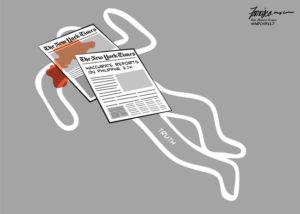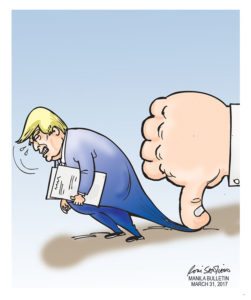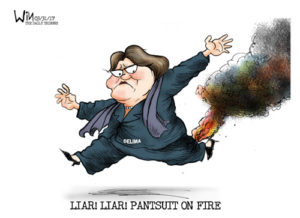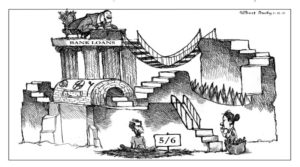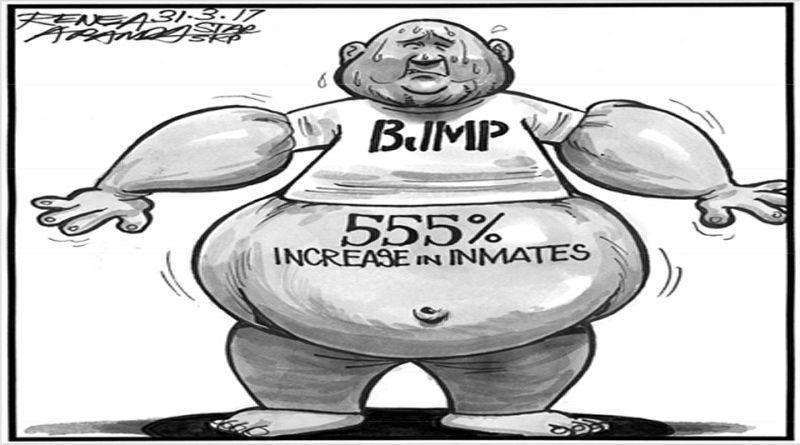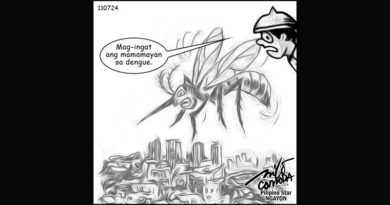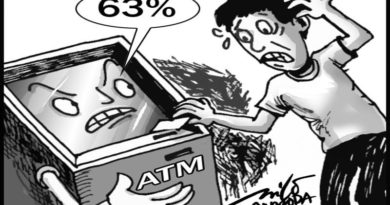PhilStar: Congestion
Oplan Double Barrel has been reloaded, with fewer ammunition intended to kill. Drug-related killings continue daily nationwide, but more suspects are now being arrested instead of being shot dead or strangled with a plastic bag and packaging tape.
The arrests have compounded the congestion in local jails, where all suspects are detained while undergoing preliminary investigation or trial. Most of the new detainees are too poor to post bail, and many face charges for non-bailable drug offenses.
As of last month, local jails were congested by an average rate of 555 percent, according to the Bureau of Jail Management and Penology, which has jurisdiction over the facilities. The situation is no better in jails under provincial governments.
National prisons under the Bureau of Corrections have been congested for a long time. The glacial pace of court trials means a slower congestion rate for the facilities that house convicts, but the prisons are also operating way beyond their capacity.
The high priority given to the war on illegal drugs must be matched by the expansion of facilities to accommodate the surge of detainees. At the Biñan City Jail in Laguna, for example, a facility meant to hold only 22 detainees currently has a staggering 602 inmates.
In many jails across the country, inmates have been forced to take turns sleeping because every available space all the way to the ceiling holds an inmate. Some people may scoff that this is well-deserved punishment for drug offenders, but all of the inmates are still being prosecuted and have not been convicted. A number of them could be innocent. But even guilty inmates have a right to humane treatment.
Several jail facilities now look like the trains used to transport Jews to the gas chambers during the Holocaust. The trains were so packed that there were people who died even before reaching the concentration camps.
If the government lacks the resources to confront this problem, it can turn to the private sector or the international community for help. The inhuman treatment of detainees can add to the growing list of accusations about gross human rights violations perpetrated in waging a vicious war on drugs.

